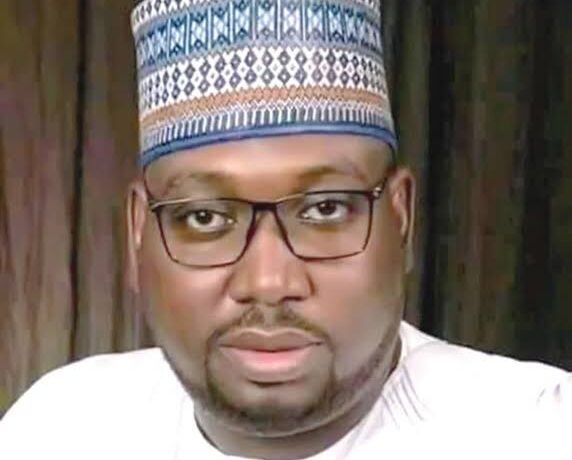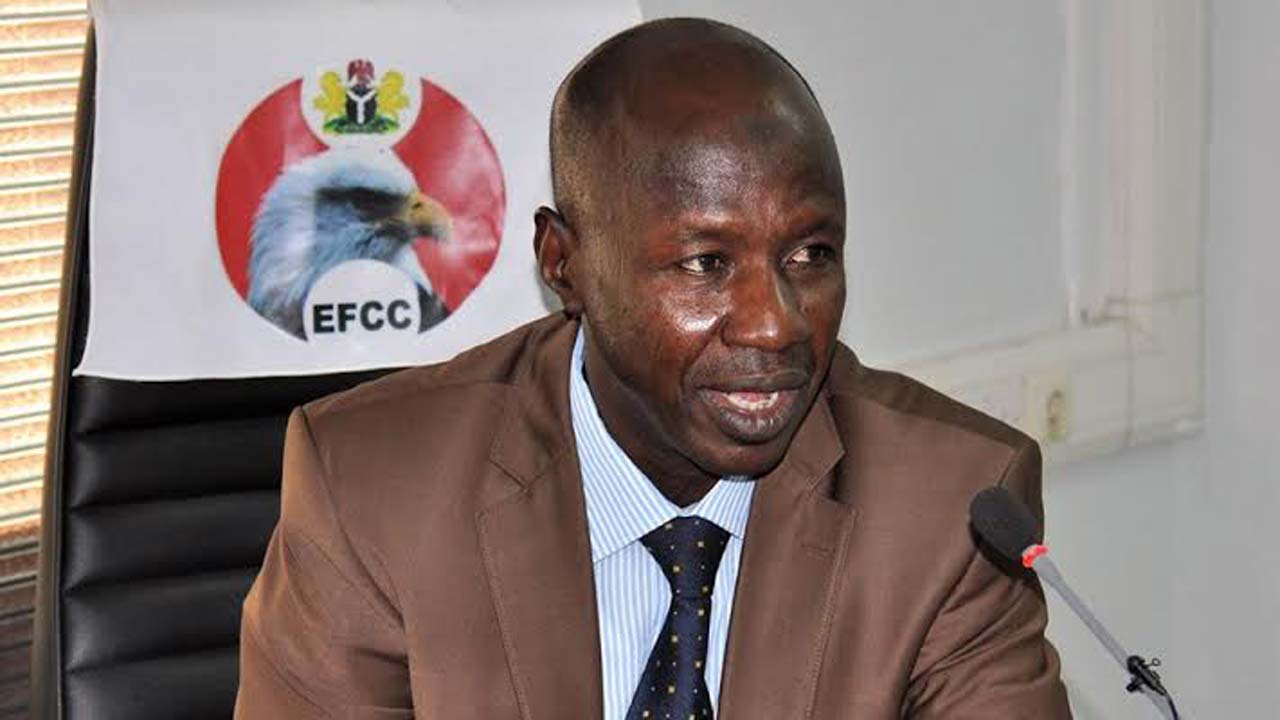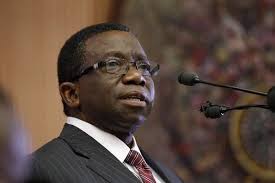NGOs, Activists Must Bridge Gap Between FG, Protesters to End Hardship- Dr Bolaji Akinyemi
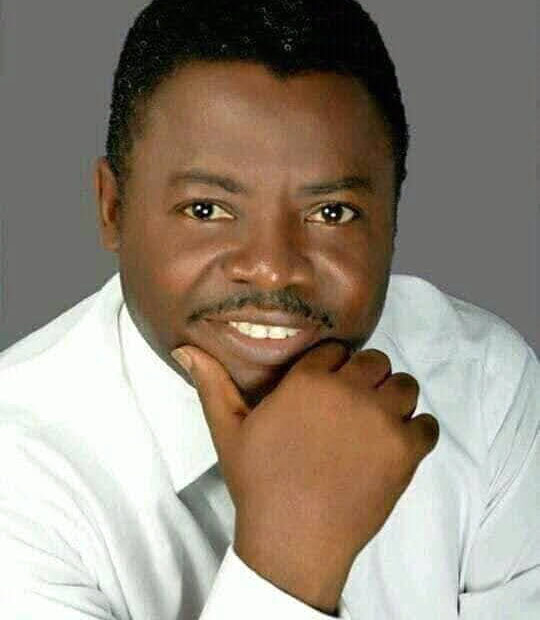
Key points:
- Encourage dialogue between the FG and protesters
- President Tinubu inherited problems and can’t solve them instantly.
- The constitution isn’t meeting people’s needs, and democracy is empowering selfish leaders.
- Reducing government costs, like National Assembly members’ salaries, is a positive step.
- Borrowing should fund productivity, not luxury items.
- Part-time legislation is needed to reduce governance costs.
By Clement Adeyi
Dr Bolaji Akinyemi is the Chairman of Board of Trustees and National Coordinator of Project Victory Call (aka PVC-Naija), a frontline Non-Governmental Organisation that charts a new course for Nigeria by advocating good governance, unity and peace, national development, nation building as well as citizenry’s wellbeing.
In this interview, he speaks glowingly on the need for NGOs, Civil Society Organisations, sociopolitical and economic activists to rise up and advocate synergy and dialogue between the Federal Government and the citizenry to end the ongoing #EndBadGovernanceInNigeria protests.
What do you think are the roles of advocates of good governance NGOs, particularly PVC Naija, Civil Society Organisations (CSOs) as well as sociopolitical and economic activists in ending the ongoing hardship protests in Nigeria?
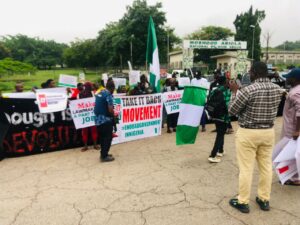
Credit: Sahara Reporters
The protests are inspired by activists, many of whom are in the frontline of the struggle for good governance and end of bad governance and the current hardship. But their one-sided operations must give way to the aspirations of our society.
In the interest of the nation, Nigeria which is bigger than everybody and personal or group interests, they, including NGOS as well as Civil Society Organisations, should come together and rise up to advocate a synergy between the Federal Government and the citizenry, particularly the aggrieved protesters to ensure the end of the protests.
The country can not afford the protests to degenerate to further chaos and destruction.
Considering their relevance in the society, I believe that government and the protesters would listen to them, especially if the former calls for a dialogue which is actually the right thing for it to do at this very crucial moment that the country is passing through. This is because the country can not afford the protests to degenerate to further chaos and destruction. Enough is enough of the crises so far witnessed since the protests started across the country on August 1 which led to the death of about 18 persons and vandalisation in different parts of the country even as businesses worth billions of naira were grounded.
We are far behind the rest of the world in formal and informal education. We must step up the practice of advocacy by balancing it with community political education. This is a very sharp edge that PVC Naija of which I am the chairman of the BOT is having over many other advocacy organisations in the public space.
We must come together and stimulate advocacy in making cases for the people for government to do the needful and end the protests. We must bring the people out of their cocoons of ignorance and feeble mentality to a juncture of understanding and sacrifices needed for nation building. It is at this point that our cooperation and synergy must be activated much more to inspire unity, peace, good governance and wellbeing of the people.
We are far behind the rest of the world in formal and informal education.
PVC Naija is a frontline NGO in this regard and our efforts are yielding great results.
In our case at PVC Naija (Project Victory Call Initiative), we operate through projects initiation to bridge existing gaps in nation building. One of our numerous projects is iWalk, which simply means “independence walk” which holds every October to advocate crucial programmes for nation building and or national development. This year’s walk is for Economic and Financial Creativity for a greater Country, iWalk for EFCC to be precise.
Sincerely, the efforts of EFCC might be inconsequential until public efforts are galvanised to complement the efforts of the Commission. We have a proposal with the EFCC to use PVC Naija’s potentials to bridge the gap of misunderstanding of their efforts and to create a triangular nexus of synergy in fighting corruption on behalf of the people, the Commission and other stakeholders. We hope this obvious huge project gets the chairman’s approval and urgently too.
In the ongoing protests tagged: #EndBadGovernanceInNigeria, some lives have been lost and businesses grounded and we have yet to see the end? Who is to be blame?
Apparently, President Bola Tinubu is not in any way solely responsible for the situation in the country because the challenges had been on ground before he assumed office on 29th May, 2023. He inherited the problems which foundation were laid by his predecessors over the years. So, he doesn’t have any magic wand to perform any magic in solving the problems on just one day. I m not trying to justify him but that is the fact. The truth must be told. This doesn’t mean that I am excusing him from his roles, either passive or active to solve the problems. No!
But the fact also remains that he aggravated the problems that had been on ground on the very day he was sworn into office with his first pronouncement: “Subsidy is gone.”
It was that singular statement that marked the beginning of the hardship because it eventuated in the removal of fuel subsidy and attendant scarcity of and hike in fuel prices as well as prices of goods and services, particularly food items and hunger rage against Nigerians.
Marginal price alteration of petroleum products is bound to throw things out of order
That statement: “Fuel subsidy gone” was careless and reckless! No President should make such a statement without first of all sitting down and designing a plan of action and a roadmap based on a people-oriented policies. Even if he did so before that day, the statement was too impromptu because the negative implications of fuel subsidy on the populace were obvious so much that it shouldn’t have been removed in one fell swoop or suddenly just like that. It should have been gradual.
Petrol and diesel are the twin conveyor belts that drive the local economy in Nigeria. Therefore, a marginal price alteration of petroleum products is bound to throw things out of order with inflation as the major implication and that is what we are witnessing now.
What would you say are the direct cause and impacts of the hardship?
The direct impact of the hardship is scarcity of food items and hike in price by farmers and marketers. Food inflation. And the major cause is high transport fare due to high fuel price. Obviously, fuel subsidy removal is the root of all these problems. For farm products to get to Lagos from farms in the North with 10 tons trailers or trucks for instance, farmers have to pay transport fee of N1.5 million as against between N500,000 and N700,000 that was obtainable before fuel subsidy was removed.
But should we continue to blame the president because of his first mistake in office? Absolutely no, because he has started proffering solutions by removing taxes and import duties on goods and also releasing rice to different states at a reduced cost of N40,000 per bag as against N75/N80,000 per bag.
The president should call the youths and stakeholders to a round table
He was misadvised by his advisers and he remained silent when he should be engaging the people until the ongoing hardship protest began on August 1. He can still do well by addressing the nation and explain the proactive measures he had taken to find solution to the hardship and how soon people will begin to see the result. The arrogance of silence is what triggered the hunger protests. Dialogue is the way to go. The president should call the youths and stakeholders to a round table and carry the people along with a view to proffering solutions.
The country just celebrated 25 years of democracy. What is your assessment?
It is democracy at work. It is still growing. It is a celebration of our current president, Bola Ahmed Tinubu and other Nigerian elder statesmen who faced the barrels of guns of the military by fighting for democracy till they were sent back to the barracks and our democracy was retrieved from them. It is victory worth the generous “dance” or what he jokingly referred to as swagger that the president gave it, though unappreciated by the masses because of the hardship they had been facing since he took over from Buhari.
A proper Yoruba Boy who ‘dobale’ for democracy” is a needless jab on the day he should bring out all tribes and tongues to join hands with him to build the motherland of his dream.
Read Also: Empowering Local Governance: ALGON Advocates For Bottom-Up Approach
However, his handlers should henceforth restrict him strictly to prepared speeches to avoid a repeat of a clause such as “subsidy gone” which was an extemporaneous discharge that landed us in hardship today.
Where are we with the Nigerian democracy?
We are where we are! For me, it’s a country bedeviled by absence of a constitution that is not being actually implemented to meet the needs of the people. It is a democracy that is just empowering the ‘hijackers’ (selfish leaders) of the country and who have become people’s oppressors as if they are the only owners of the country. The gap between them and the people is too wide and must be bridged so that the rich would not continue to get rich and be enjoying themselves, while the poor continue to get poor and be suffering.
Do you think the local government autonomy granted by the Supreme Court recently is in the true spirit of democracy and grassroots development?
This is bringing us back to the error with which the federation is being run. Does the constitution give autonomy to the local government? If it does, in what context? The constitution shouldn’t have a position to be explored against us. Supreme court exists to interpret the constitution but not to take a parallel position to it in order to save the LGA or give it a soft landing. We need to tinker with the 1999 CFRN by lifting the suspension on the 1963 CFRN and incorporating the conference report of 2014. All of these are parliamentary actions that the constitution supports.
In order to cut cost of governance as a part of government’s efforts to address the current hardship in the country, the House of Reps recently slashed members’s sale by N50 percent. With the move, half of their N600,000 salary would be used to support the efforts against the hardship. Do you think this offer is a right step in a right direction?
They failed to listen to the cry of the people.
This position by the National Assembly is informed by the fear of what is happening in Kenya. Nigerians pleaded with them when they were bent on buying SUVs. But they failed to listen to the cry of the people. It is obvious that the people would only view the gesture as medicine after death; which means it is coming after the hardship had had a devastating toll on the people which they find it difficult to recover from with their (the reps) donation which can never be enough.
What is your message on how to survive the hardship?
The reality of a way out of hardship is hardship. Permit me to make reference to the Bible. In 2 Kings 4:1-7, a breadwinner of a family died leaving a debt behind for his family, which put his two sons in the danger of slavery. But the dilemma was that should they go and borrow to pay the debt? But they had a source of money in the house. A pot of oil. The wife of the man, a Shunammite woman, cried unto Elisha, a man of God and complained to him. Then Elisha asked her to go and borrow vessels, lock herself and children in the house and pour the oil into the borrowed vessels. Then they started emptying the oil into the vessels and the quantity increased miraculously till there was no more vessel to fill. Then the man of God asked her to go and sell the oil, pay the debt and survive with the remaining quantity.
Do we have oil in Nigeria? Yes! Should we still be borrowing? Yes, because the Shunammite woman and her sons borrowed vessels to fill them with oil to solve their problem.
If we must borrow, it should be used to finance our potentials for productivity, but not to buy expensive exotic cars
But if we must borrow, it should be used to finance our potentials for productivity, but not to buy expensive exotic cars for legislators, building house for Vice President and buying jets for Mr President and be asking the people to endure the hardship. We should borrow with a mindset to solve our problems.
In order to also cut cost of governance, Senator Orji Uzor Kalu recently moved a motion for part time legislation. Are you in support of this kind of legislation?
This is long overdue because it’s obvious that we can’t maintain the luxury that comes with the humongous size of our National Assembly in view of our economic predicament. Single or bicameral legislature, this sacrifice is timely. We must cut down the cost of governance.
Read Also: Hunger: How Tinubu’s Efforts To Stop August 1 Protests Failed
The Insight Report
Nigeria Coverage

